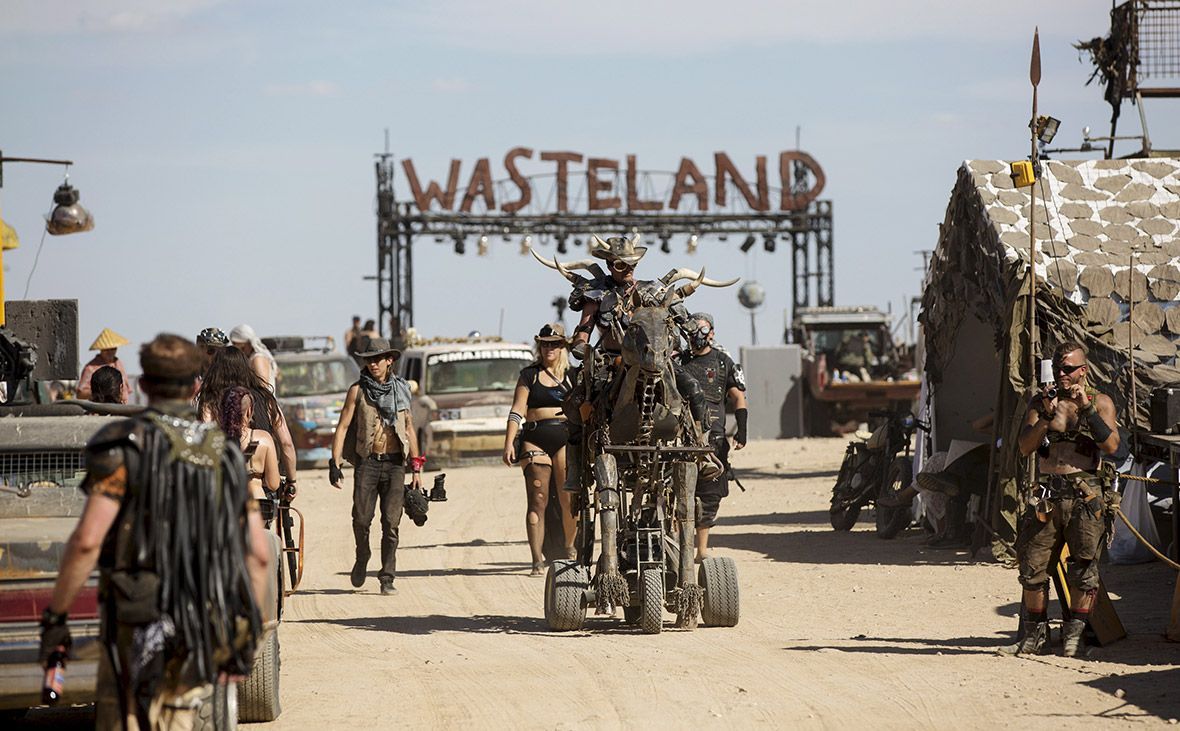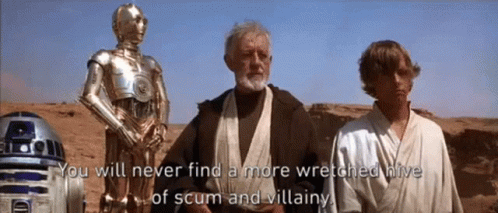The New Map
Imagine a world of thousands of citadels. Nation-states, for the most part, have finally broken apart. Cities and communities have seceded to create their own autonomous zones and sovereign states. With ever-growing competition, people have a vast array of options where to live: citadels literally compete for citizens by offering increasing living standards and catering to various preferences in terms of economic, cultural and spiritual life.
As most countries have collectively lost control of vast amounts of territory, there has appeared an abundance of no man's land. Natural appropriation through homesteading, ranching, industrial and recreational use has become the default way of acquiring this unoccupied territory. A myriad of new developments have popped up all around. The population of the planet, however, is nowhere near as high as to cover the whole globe, leaving vast areas completely unpopulated for many more centuries to come.
Due to their lawless nature, some of these territories are known as the Wasteland.
"In civilized society, the ultimate price for ill behavior is expulsion, and all-around ill-behaved or rotten characters (even if they commit no criminal offense) will find themselves quickly expelled from everywhere and by everyone and become outcasts, physically removed from civilization."—Hans-Hermann Hoppe
No Tolerance for Wicked Men
In Exile as Punishment: The Way of the Citadel, I made a case for exile as a method of punishment in a society based on private property. As prisons have a high cost of maintenance and citizens may never want a certain criminal in their midst again, expulsion remains the only viable option. Just like a landlord can get rid of an unsavoury tenant, the citadel is likely to exercise a similar right. This increases the value of the community and makes the place more attractive to law-abiding citizens.
Each citadel will have different rules when it comes to banishment. Some will require a popular vote, others a decree by a membership committee, yet others the verdict of a private court. Switzerland is famous for its strict admission rules for newcomers: a naturalization commission consisting of residents will decide whether they want to have a prospective immigrant in their midst based on his social status, occupation and general likeability. Similar commissions may exist for exiles-to-be. No matter the methodology, the criminal will be treated according to the laws that he signed up for voluntarily and, thus, cannot object to. The nature of property rights presupposes that title holders are allowed, legally and ethically, to physically remove violators. Citadels are private property.
Choose Your Prison
The newly banished is then presented with a question: where do I go? Gladly, there are thousands of citadels out there. After some research, the criminal finds a peculiar place which welcomes robbers, thieves, scammers and other types of thugs. The caveat, however, is that, per the contract, he will be assigned a job for a few years, manual or otherwise. He may not like the job, it will most certainly pay very little, but there will be food, shelter and protection within the citadel's boundaries. There will always be demand for cheap labor somewhere, and there will always be a supply of delinquents. Entrepreneurs will exploit this opportunity to create work camps that are, in essence, voluntary prisons. After a few years of labour for the benefit of the settlement, the criminal's contract will expire, and he will be free to find a better job on the market, move to a better neighbourhood or even request a recommendation letter from his boss with the hope to re-apply for residency in his home citadel from which he was banished.

Opportunities for those who reject voluntary prisons or simply cannot control themselves even in those environments will be far more meager. Murderers, assaulters, rapists, pedophiles and other scum of the earth will find themselves in the lawless expanse of the Wasteland. It is a scattered place not occupied by any citadel, industrial complex, farm cooperative or homestead. Characterized by low-value soil, a lack of resources or simply being remote, this place is of no immediate interest to the builders of civilization. There is ample opportunity elsewhere, and it will take hundreds or thousands of years before such areas may become useful for Earth's expanding population.
"Indeed, in cooperation with one another, insurers would want to expel known criminals not just from their immediate neighborhood but from civilization altogether, into the wilderness or open frontier of the Amazon jungle, the Sahara, or the polar regions."—Hans-Hermann Hoppe
Dog Eat Dog
Having been removed from civilization to the Wasteland, the criminal finds himself in a place where the "law of the jungle" prevails. Every man for himself. Dog eat dog. The comfortable life of the citadel has made him soft and unaware of the surroundings. This has to change now. Watching over the shoulder must become the modus operandi. While he has heard the stories of lone wolves surviving the vastness of the Wasteland all on their own, he realizes that the best bet is to find one of the competing gangs and join them. It is unlikely to be a pleasant experience: those with a shred of goodness in them are in voluntary prisons. This place is for people like him—the hopelessly deranged, the psychopathic, the innately evil. Here, he must confront forces that are as malevolent as him or even worse.

The Wasteland is a place of the type of anarchy that gave the word a bad reputation. A lawless, orderless, chaotic hellscape. There exist some villages and outposts of sorts, but these settlements are rarely safe and stable. Pillagers and marauders are a frequent occurrence. And if a group of criminals finds a remote spot that is safe from the outside environment, internal battles for power or the simple satisfaction of murderous instincts prevent them from evolving the place into a peaceful settlement.
Some Wasteland dwellers, when interviewed by brave citadel reporters, shared a common thought: "I wish more citadels had capital punishment. Because this is worse. Much worse." Others, on the other hand, especially successful gang leaders, found that they were destined to rule this domain. "I know who I am and I don't hide it. This is where I belong. You are in my world now."
Man and Beast
One trend is clear, however. When the Transformation began, the population of the Wasteland was large as was its territory. As more citadels started appearing, forcing people to live with each other according to pre-determined clearcut rules, the number of criminals began to fall. Crime rates vary from place to place, but are extremely low compared to the old world full socialist nation-states. For it is easier to choose a citadel that fits your character rather than be a misfit elsewhere. There is simply no way to go against the rules of your chosen home—banishment follows immediately. Only the gravest crimes are not tolerated by anyone. Naturally, there is a hellish place for such individuals.
The Wasteland is part of Natural Order. There will always be evil in this world contrasting the goodness of humanity. It manifests in people's material desires, perverted actions and, eventually, their living conditions. If one's mind is a wasteland, his physical surroundings will reflect that, too. But in the world of thousands of citadels, in which the process of civilization has created law and order, there is no tolerance to dehumanizing activities. They are expelled into the wild domain where they belong. In the old days, one could separate the human from animal based purely on appearance. Today, a man is regarded an animal when his bestial nature takes hold of his life. For he who has no control over his animality is no better than a beast acting upon instincts. And such a beast does not deserve to be among men of civilization. He belongs in the wilderness of the Wasteland.

